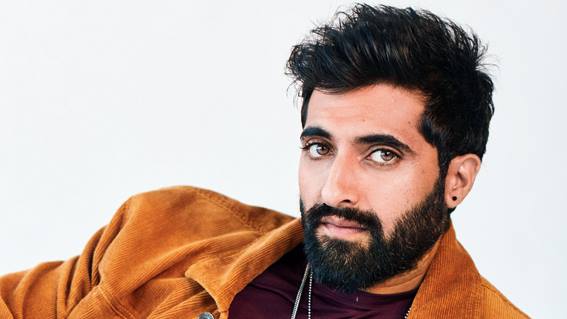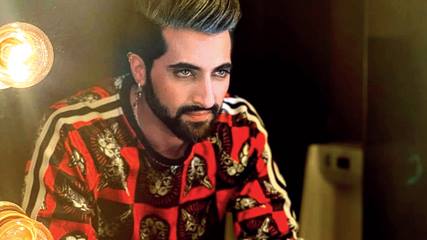My three-year-old son is going to be systematically interrupting this interview from the back and asking his own set of questions,” Akshay Oberoi laughingly warns me as we start to chat. The 35-year-old actor, who scripted a journey from New Jersey to Mumbai more than a decade ago, pursued a bachelor’s degree in Theater Arts and Economics at The Johns Hopkins University in Baltimore and completed acting training in Stella Adler in New York and then Playhouse West in Los Angeles.
Over the years, Akshay has starred in a bunch of films and web series and is now gearing up to play the “psychotic” kingpin of a human trafficking racket in Flesh, that will stream on Eros Now from August 21, and pits him opposite Swara Bhasker. Though he played a negative character in the criminally underrated Gurgaon a few years ago, Akshay is cast against type in Flesh.
From what we could gauge in the trailer of Flesh, your Taj seems pretty repulsive, and that’s putting it mildly!
Yeah, ‘repulsive’ isn’t really a nice thing to hear, but in this case, it sounds good! (Laughs) People are calling and saying, ‘We are terrified of you right now!’ That means that what we were trying to do came across.
I jumped at the part, you know. Danish (Aslam, the show’s director) has been a friend for years and is also a very good director. He had seen me in Gurgaon, where I had played negative, and he had me in mind when they were putting Flesh together. My endeavour constantly has been to prove that I am a versatile actor. The thing is that if you have the box office behind you, then you get all kinds of work. But then when you don’t draw ‘x’ number of people to the theatre seats, then you have to keep proving your versatility all the time, in order to keep landing different parts.
My whole hunger in life is that... to play different people, stretch myself and be the best possible actor I could be. So I keep looking for stuff that’s outside the realm of what I am comfortable in. I am always hunting for characters with accents and different body language and from different walks of life.The more I do that — and thanks to the web, I am getting to do it now — I feel that people will trust me more and keep giving me interesting work. That’s what gets me up every morning and keeps me going... playing people who aren’t me.
What’s your understanding of Taj?
I asked myself the question that you just asked me. ‘Who is this person? How do you approach this person?’ This guy is so far off-centre that I couldn’t even wrap my head around him. We worked on the look, this guy is from Calcutta, so I started working on a Bangla accent, I had a language trainer. The coloured hair, the blush, the body chains... once I got that in place, I started working on the internals. I needed a hook to start that journey because Taj is very bizarre and I felt that unless I wear the clothes of this guy, I won’t understand him fully. I started wearing the clothes at home and that’s when I started to really work on him.
The further I prodded, I realised that Taj has had a very traumatic childhood and there are certain things that, at a very young age, left a big impact on his mind. The only way he knows to act out is to be larger than life, to leave a mark by wearing the clothes he wears and being rebellious and crazy.
I did some kind of justification in my mind regarding why he does what he does. At the end of the day, I have to love my characters to be able to play them. He might be a terrible person, but if I judge him, then I can never play the person.
So you have to empathise with every character you play?
It’s actually very good acting advice. If you pick up any book on acting, it will tell you this. I have to have some kind of empathy to be able to get into a character. It’s a technique I apply to all my characters. In Gurgaon, I played a guy who kills his entire family. When he does that, he feels justified in the moment, there is no guilt associated with that. I needed to also feel that to be able to play him realistically. The same goes for Taj. I can now look back and say he’s terrifying, gruesome and sickening, but when building him, I tried to understand him and justify his actions.

Films are a different ball game altogether... there’s distribution, exhibition, the costs are ridiculous.... There were so many films of mine that were well liked, like Pizza and Kaalakaandi, but they never got a chance at the box office. With the web opening up, not only are creative people getting to do all kinds of work, but now you can release anything, and if it’s good, it will find its viewers.
Does your extensive training in acting enable you to snap out of your characters at ease, or do you keep them within you in order to play them better?
That’s a great question. Training helps you look at things from a certain perspective, but at the end of the day, the mind is a really funny place. Acting and delving into someone else’s psyche is a mind game. As much as there is technique and applying that in practice, it’s always difficult.
Especially when it comes to someone like Taj, it’s tough to walk away. You are in that mind space for 12-13 hours a day and as much as you try not to, it’s hard not to get the guy home. But the moment I come home and meet my wife and son and a couple of close friends, I manage to snap back into who I am. But then, Taj lives in a very dark and negative place. Since I was playing him for a long time, it definitely took a toll on me. It’s a little sadistic and selfish because getting him home helps you understand him better, but it affects those around you. But you have to tell yourself to let go and not get into this wormhole of negativity.
On a lighter note, did you pick up any Bangla? There was at least one cuss word in Bangla from you in the trailer...
(Laughs) I’m glad you caught that! I can understand it a little better, but I don’t remember much of it now, except for a few lines of my own dialogue. I worked on some other project immediately after Flesh and it’s been a year-and-a-half, so I remember nothing of what I said. Now when I am doing interviews and Instagram Lives, I am being asked to speak in Bangla and I am like, ‘Oh my God!’ (Laughs) Though I would definitely have liked to keep in touch with the language.
Your career has picked up in the last few years. How do you look back at how things have panned out for you?
I think it’s a combination of various factors. There’s been a seemingly overnight change in the tastes of the audience, it’s happened so rapidly that I think even the industry is having a tough time wrapping their heads around it. In just about a year, the market, the business and what people want to watch have changed. The big tent-pole films with huge stars didn’t do well, but the relatively smaller films with younger stars really hit the mark last year. That, with the OTT space opening up in the way it did, really changed the game for a lot of people.
Films are a different ball game altogether... there’s distribution, exhibition, the costs are ridiculous.... There were so many films of mine that were well liked, like Pizza and Kaalakaandi, but they never got a chance at the box office. With the web opening up, not only are creative people getting to do all kinds of work, but now you can release anything, and if it’s good, it will find its viewers.
You’ve also gone back to shooting and dubbing. What’s that been like in the new normal?
I’ve just shot for a project that’s supposed to release soon. Man, it was weird! We were doing a scene where old friends meet after a long time. When ‘Action!’ was called, the impulse was to hug the co-star because the scene was about friends meeting, but in the middle of that, I froze. I was like, ‘I don’t know whether I should hug her. There’s a pandemic happening, what should I do?’ There are so many restrictions and yet ours is the kind of work where you can’t really be socially distant. It’s a strange new world....










